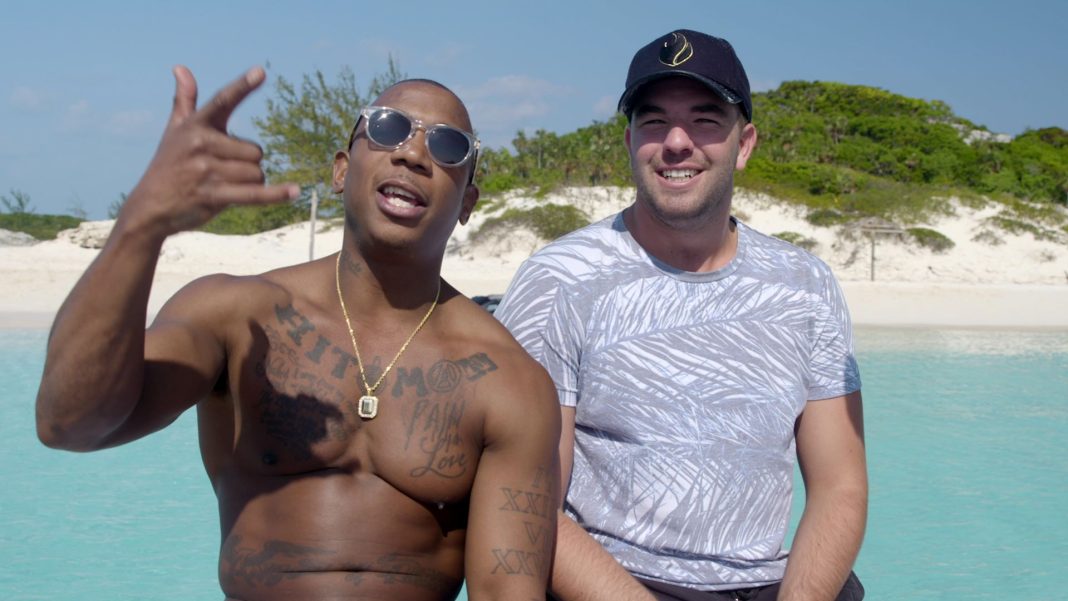When somebody utters the word festival, there are a few classic images that spring to mind. Crowdsurfers and mates on shoulders? Most likely. Portaloos and wellies? Definitely. A sad slice of plasticky-cheese sitting on a slice of even sadder bread, housed in a polystyrene box? Until 2017, this would have been an extremely strange answer, but to anyone versed in the internet culture, it’s an image that instantly recalls the utter PR disaster that was Fyre Festival, a 2017 ‘luxury’ island event that turned out to be little more than a chaotic farce of leaking tents, disappearing artists and offers of sexual favours in exchange for drinking water.
In light of its horrendous reputation (and founder Billy MacFarland’s four-year imprisonment on fraud charges), it seemed unlikely that this event would ever be anything more than a meme-worthy one-off. But as fortune (or misfortune) would have it, the festival that once caused $28 million dollars of losses is back for 2024, and if you wanted a ticket, you’re apparently already too late – according to its MacFarland, Fyre Festival Part II is already sold out.
For those who weren’t clued in by the bizarrely-humorous 2019 Netflix documentary, the list of ways in which the original Fyre Festival went wrong is seemingly endless. Announced as a partnership between Macfarlane and rapper Ja Rule, Fyre Festival was sold as some kind of rich kid utopia: sponsored ads by Kendall Jenner, Emily Ratajakowski and Bella Hadid showed them frolicking on tropical seashores, promising “two transformative weekends … on the boundaries of the impossible.”
Scheduled to take place in the Bahamas during April and May 2017, guests were promised meals from celebrity chefs, fancy eco-friendly dome lodgings, and an overall sense of decadence and exclusivity, with MacFarland spreading rumours that the land had once been owned by notorious cartel leader Pablo Escobar. Scheduled performers included the likes of Pusha T, Blink-182, Disclosure, Skepta and a slew of rappers and DJs, but it wasn’t really about the music: with tickets retailing at between $500-$1200, Fyre Festival was being positioned as a kind of uber-upgrade on Coachella, a place at which to flex your attendance, embrace the ‘vibes’ and prove that you were one of the cultural elite.
Fast forward to the event itself, things were a very different story. Described by some attendees as a kind of upper-class Lord of The Flies, almost all of the bands had pulled out, and guests were stranded on a festival site where provisions were far from adequate – not enough tents or beds, poor lighting and food provisions, and a security team who seemed just as under-resourced and confused as the guests themselves. A viral Netflix star was made of hapless on-site organiser Andy King (aka ‘Water Guy’), going to extreme lengths to try and maintain order and rally supplies. With an official statement that blamed the whole fiasco on “events outside of our control” in an official press statement, Fyre Festival attendees were eventually offered a full refund, or complimentary attendance at Fyre Festival 2018 – which of course never happened, given that Macfarlane’s legal charges
So after all that upheaval, who in their right mind would actually be thinking of attending twice? With the original event now over five years ago, it is surprisingly difficult to find people who will openly admit that they have bought tickets for 2024. Online discussion, however, seems to suggest that if funds were in place, there are a lot of people who might consider it, mostly from a place of morbid intrigue.
While there is no shortage of online anecdotes around fights, freezing conditions and extortionately-priced emergency flights home that plagued 2017’s attendees, FOMO is a very funny thing. If everyone is talking about something, or it has been magnified to the level of a generationally-defining pop-culture meme event (which for a time, Fyre Festival was), there is a certain desire to want to be a part of it, even if you can’t quite be entirely sure what ‘it’ is. There is a rush to have ‘experiences’, but also to be the one to document them, to reap the social rewards of being the one who was ‘there’.
A similar story can be found elsewhere in the concert economy. Taylor Swift and Beyoncé are obviously much more credible names to put your trust in than Billy MacFarland, but the record-breaking furoré around the Eras and Renaissance tours suggests that not everyone who is clamouring for a ticket is a hardened fan so much as people who want to be part of what everyone is talking about. Even for those who consider themselves to be savvy consumers, the lure of being part of a ‘once-in-a-lifetime’ cultural moment can be all-consuming, emboldening a kind of ‘fuck it’ attitude to event-going where money-liquid consumers seem willing to take a chance on something new, especially post-pandemic.
While many Fyre Festival naysayers fixate on the idea that anybody willing to pay thousands for such a dubious-sounding event only has themselves to blame, the bulk of its original tickets reportedly sold at $500, comparable to many other camping festivals of that length. When We Were Young Fest, for example, which thankfully went off pretty smoothly in 2022 and returns for its second year in October, traded off a lot of the same kind of ‘too good to be true’ scepticism as Fyre Fest, at least in the beginning. Despite significant concern about its patchy advance communications, its first date sold out in just under three months, proving people’s willingness to take a risk in the name of a good time.
Of course, the faith that MacFarland is asking of his attendees goes far beyond these other events. At time of writing, Fyre Fest II has no confirmed acts, no specifically confirmed location, and no confirmed dates. In fact, the only thing it does really have is MacFarland himself, hawking branded merchandise and insisting that the haters are only helping to do his marketing for him, when they share their doubts online. Redefining the idea of the underdog, expectations for Fyre Festival 2024 seem both shockingly low, and simultaneously high – surely after spending four years in prison, MacFarland would not risk messing up that hard again? As he bleakly revealed via Instagram, he drew up the plans for Fyre II while in solitary confinement.
If Fyre Festival 2024 does go ahead, there seems every chance that it will be well attended. For an opportunity-savvy influencer who is happy to roll with the punches of a potentially disastrous event, $500 is a small price to pay for lucrative content or a tale that you can tell long into the future of internet folklore. For as long as we all love a good ‘I was there’ story, there will always be music fans who are willing to part with their cash – even if it means risking something worse than a bad cheese sandwich.







